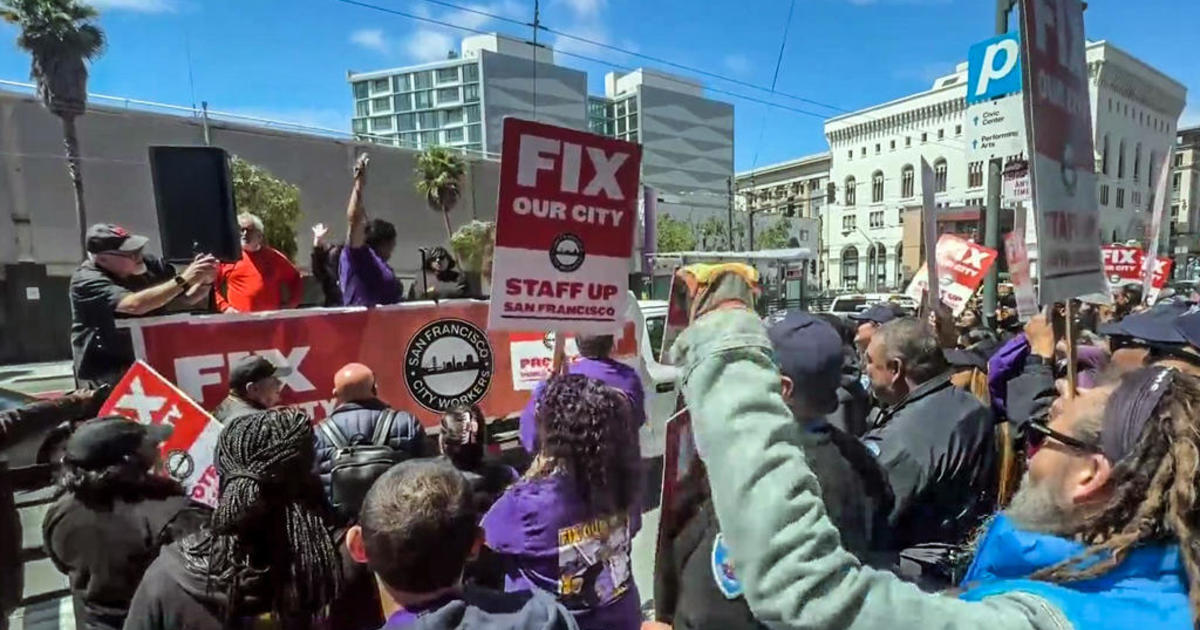Feinstein's Anti-Encryption Bill Provokes Fear In Silicon Valley Tech Firms
SAN FRANCISCO (CBS SF) -- U.S. Senator Dianne Feinstein (D-California) is making enemies in Silicon Valley following the release of a discussion draft of legislation that would require U.S. technology companies to design "back door" entrances for their products.
Critics, including major Bay Area tech firms Google, Facebook, LinkedIn, Twitter and Apple, said in a letter this week to Feinstein and U.S. Senator Richard Burr (R-North Carolina), the two Senate Intelligence Committee leaders who drafted the bill, that the consequences of limiting encryption could be devastating for America and the world.
The draft legislation comes in the wake of the Apple encryption debate in which the government tried to force the Cupertino-based company to comply with a court order to unlock an iPhone belonging to the shooter in the 2015 San Bernardino attack.
Along with the release of the draft legislation, Feinstein stated, "The bill we have drafted would simply provide that, if a court of law issues an order to render technical assistance or provide decrypted data, the company or individual would be required to do so. Today, terrorists and criminals are increasingly using encryption to foil law enforcement efforts, even in the face of a court order. We need strong encryption to protect personal data, but we also need to know when terrorists are plotting to kill Americans."
But may critics say Feinstein doesn't understand what's at stake if the legislation were to pass.
Feinstein-Burr's bill, titled Compliance with Court Orders Act of 2016, could bring free speech, security and innovation online to a screeching halt, according to tech companies represented by four groups: the Internet Infrastructure Coalition, Computer & Communications Industry Association, Reform Government Surveillance and the Entertainment Software Association.
Critics say the proposed legislation would require technologies be built to allow a third party to potentially have access and prioritize government access over the user's digital security. This, critics say, would increase the risk of bad actors, such as dictatorial governments, criminals and hackers, gaining access to users' private information and exploiting that information.
Exploitation could mean the potential of physical harm, financial loss or any number of other unintended, negative consequences, according to the letter sent to the U.S. Senators.
Tech titans argue that they already "respond expeditiously to [any] legal process [requirements] and emergency requests for data from government agencies" and that they design their products to keep their users safe from both criminals and governments.
Another major concern the tech organizations expressed is the economic implications for their industry if the legislation were to be made into law.
"A law passed by Congress trying to restrict the use of data security measures will not prevent their use. It will only serve to push users to non-U.S. companies, in turn undermining the global competitiveness of the technology industry in the U.S. and resulting in more and more data being stored in other countries," the letter states.
U.S. Senator Ron Wyden (D-Oregon) has come out strongly against the drafted bill:
However, a number of law enforcement groups and public officials have come out in favor of the legislation requiring mandatory decryption be built into technological platforms and argue that technology companies should comply with court orders to protect Americans from criminals and terrorists.
The FBI Agents Association president Reynaldo Tariche wrote a letter to Burr and Feinstein stating that their introduced legislation "protects the security of individuals'electronic data because, rather than utilizing any sort of widely available 'back door,' control over access to the protected data on covered technology remains entirely in the hands of the companies that design and manufacture communication devices."
The National District Attorneys Association and the International Association of Chiefs of Police are also among law enforcement associations that believe the drafted legislation could bolster law enforcement ability to obtain evidence necessary to carry out investigations.
An online petition to stop the Feinstein-Burr legislation has reached over 67,000 signatures.
By Hannah Albarazi - Follow her on Twitter: @hannahalbarazi.



